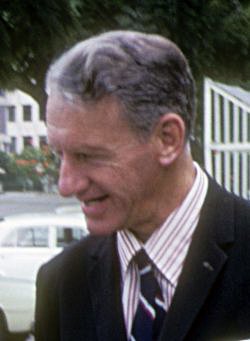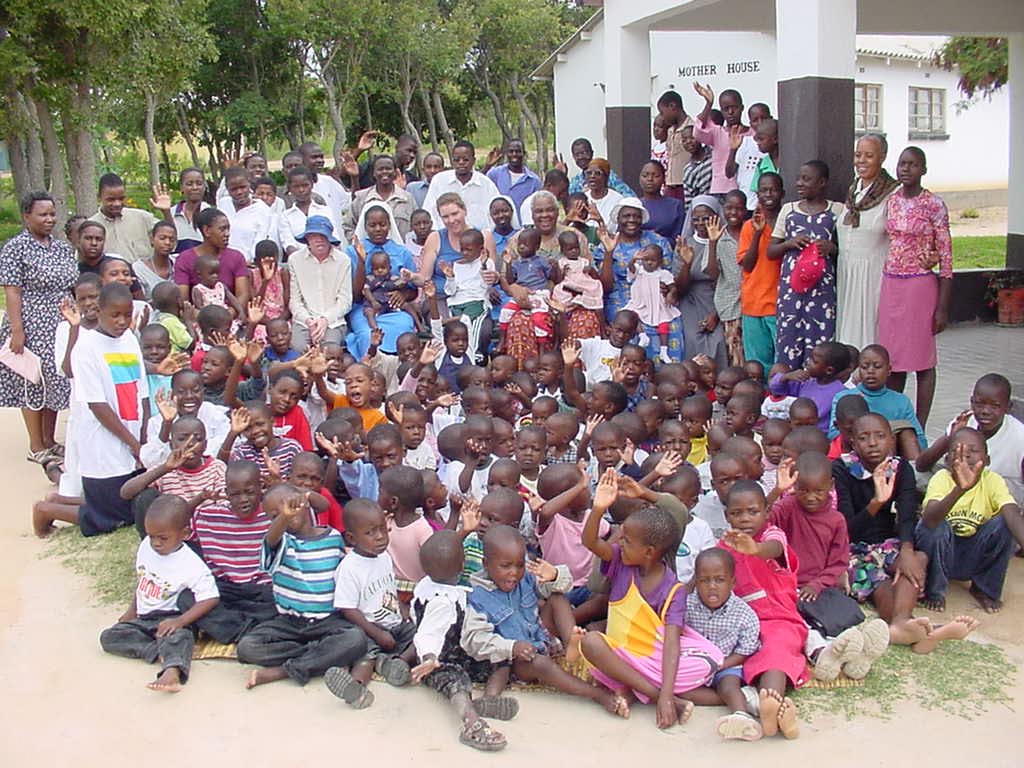|
Telecommunications In Zimbabwe
Communications in Zimbabwe refers to the communication services available in Zimbabwe. Background Postal and Telecommunications Regulatory Authority of Zimbabwe (POTRAZ) was established by the Postal and Telecommunications Act in 2000 and started its operations in March 2001. This legislation brought about a new institutional framework for telecommunications in Zimbabwe. Telephone system The phone system was once one of the best in Africa, but now suffers from poor maintenance; more than 100,000 outstanding requests for connection despite an equally large number of installed but unused main lines. Main lines in use: 356,000 (2011) The domestic system consists of microwave radio relay links, open-wire lines, radiotelephone communication stations, fixed wireless local loop installations, and a substantial mobile cellular network; Internet connection is available in most major towns that includes Harare, Gweru Bulawayo, Mutare through fiber optic and other remote parts through ... [...More Info...] [...Related Items...] OR: [Wikipedia] [Google] [Baidu] |
Rhodesia Television
Rhodesia Television (RTV) was a live-broadcast, television station operating in Southern Rhodesia (now Zimbabwe) as a private company. It was established on the 14th of November, 1960, first in Salisbury (now Harare), with transmissions in Bulawayo beginning seven months later. It was only the fourth TV service in Africa after Algeria, Nigeria and Egypt, and the first such service in southern Africa, since South Africa did not introduce television until 1976. __TOC__ Rhodesia Television (Pvt) Ltd RTV broadcast on behalf of the then Federal Broadcasting Corporation (FBC), with its major shareholders being South African companies, including the Cape Argus, Argus Group of newspapers, parent company of the The Herald (Zimbabwe), Rhodesia Herald, and Davenport and Meyer, which also operated LM Radio, based in Mozambique. Broadcasts started on 15 November 1960. RTV was funded by advertising, sponsored programmes and a television licence fee. Television reception was confined mainl ... [...More Info...] [...Related Items...] OR: [Wikipedia] [Google] [Baidu] |
Robert Mugabe
Robert Gabriel Mugabe (; ; 21 February 1924 – 6 September 2019) was a Zimbabwean revolutionary and politician who served as Prime Minister of Zimbabwe from 1980 to 1987 and then as President from 1987 to 2017. He served as Leader of the Zimbabwe African National Union (ZANU) from 1975 to 1980 and led its successor political party, the ZANU – Patriotic Front (ZANU–PF), from 1980 to 2017. Ideologically an African nationalist, during the 1970s and 1980s he identified as a Marxist–Leninist, and as a socialist during the 1990s and the remainder of his career. Mugabe was born to a poor Shona family in Kutama, Southern Rhodesia. Educated at Kutama College and the University of Fort Hare in South Africa, he then worked as a schoolteacher in Southern Rhodesia, Northern Rhodesia, and Ghana. Angered by white minority rule of his homeland within the British Empire, Mugabe embraced Marxism and joined African nationalists calling for an independent state controlled by t ... [...More Info...] [...Related Items...] OR: [Wikipedia] [Google] [Baidu] |
Social Media
Social media are interactive technologies that facilitate the Content creation, creation, information exchange, sharing and news aggregator, aggregation of Content (media), content (such as ideas, interests, and other forms of expression) amongst virtual communities and Network virtualization, networks. Common features include: * Online platforms enable users to create and share content and participate in social networking. * User-generated content—such as text posts or comments, digital photos or videos, and data generated through online interactions. * Service-specific profiles that are designed and maintained by the List of social networking services, social media organization. * Social media helps the development of online social networks by connecting a User profile, user's profile with those of other individuals or groups. The term ''social'' in regard to media suggests platforms enable communal activity. Social media enhances and extends human networks. Users access so ... [...More Info...] [...Related Items...] OR: [Wikipedia] [Google] [Baidu] |
EDGE (telecommunication)
Enhanced Data rates for GSM Evolution (EDGE), also known as 2.75G and under various other names, is a 2G digital mobile phone technology for packet switching, packet switched data transmission. It is a subset of General Packet Radio Service (GPRS) on the GSM network and improves upon it offering speeds close to 3G technology, hence the name 2.75G. EDGE is standardized by the 3GPP as part of the GSM family and as an upgrade to GPRS. EDGE was deployed on GSM networks beginning in 2003 – initially by Cingular (now AT&T) in the United States. It could be readily deployed on existing GSM and GPRS cellular equipment, making it an easier upgrade for Mobile network operator, cellular companies compared to the UMTS 3G technology that required significant changes. Through the introduction of sophisticated methods of coding and transmitting data, EDGE delivers higher bit-rates per radio channel, resulting in a threefold increase in capacity and performance compared with an ordinary G ... [...More Info...] [...Related Items...] OR: [Wikipedia] [Google] [Baidu] |
GPRS
General Packet Radio Service (GPRS), also called 2.5G, is a mobile data standard on the 2G cellular communication network's Global System for Mobile Communications, global system for mobile communications (GSM). Networks and mobile devices with GPRS started to roll out around the year 2001; it offered, for the first time on GSM networks, seamless data transmission using Packet switching, packet data for an "always-on" connection (eliminating the need to "dial-up"), so providing improved Internet access for World Wide Web, web, email, Wireless Application Protocol, WAP services, Multimedia Messaging Service (MMS) and others. Up until the rollout of GPRS, only circuit switched data was used in cellular networks, meaning that one or more radio channels were occupied for the entire duration of a data connection. On the other hand, on GPRS networks, data is broken into small packets and transmitted through available channels. This increased efficiency also gives it theoretical data ... [...More Info...] [...Related Items...] OR: [Wikipedia] [Google] [Baidu] |
Econet
Econet was Acorn Computers's low-cost local area network system, based on a Carrier-sense multiple access with collision detection, CSMA-CD serial protocol carried over a five-wire Bus (computing), data bus, intended for use by schools and small businesses. It was widely used in those areas, and was supported by a large number of different computer and server systems produced both by Acorn and by other companies. Econet software was later mostly superseded by the TCP/IP-based ''Acorn Universal Networking'' (AUN), though some suppliers were still offering bridging kits to interconnect old and new networks. AUN was in turn superseded by the ''Acorn Access+'' software. Implementation history Econet was specified in 1980, and first developed for the Acorn Atom and Acorn System 2/Acorn System 3, 3/Acorn System 4, 4 computers in 1981. Also in that year the BBC Micro was released, initially with provision for floppy disc and Econet interface ports, but without the necessary s ... [...More Info...] [...Related Items...] OR: [Wikipedia] [Google] [Baidu] |
Telecel Zimbabwe
Telecel Zimbabwe is one of Zimbabwe's mobile telecommunications network service providers. Headquartered in Harare, Telecel Zimbabwe is the third largest mobile telecommunications network service provider in Zimbabwe with the government of Zimbabwe being the major shareholder. Telecel is the first mobile phone network in Zimbabwe to attain ISO 9001: 2000 certification. History Telecel Zimbabwe began operating in 1998. It was formed as a partnership between Telecel International, which is a subsidiary of Cairo-based Orascom Telecom Company, a telecommunications company with operations in Europe, Africa, Asia, the Middle East and North America which in turn is owned by telecommunications giant VEON, and the Empowerment Corporation, which is a consortium of Zimbabwean business organisations. Shareholding Telecel shareholding consists of James Makamba, through Kestrel Corporation, the Indigenous Business Women Organisation, but the shareholding is personalised through Jane Mutasa's ... [...More Info...] [...Related Items...] OR: [Wikipedia] [Google] [Baidu] |
Net*One
Net*One was the first cellular network operator in Zimbabwe based on the Global System for Mobile Communications. The company was originally launched during the World Solar Summit in September 1996 in the capital Harare with 500 lines. Service was extended to the second city of Bulawayo at the time of the International Trade Fair in April 1997. Net*One offers a basic telephone service, Vehicle Tracking System, Short Messaging Service Short Message Service, commonly abbreviated as SMS, is a text messaging service component of most telephone, Internet and mobile device systems. It uses standardized communication protocols that let mobile phones exchange short text messages, ty ..., Broadband and International Roaming Services. Net*One is now the second largest cellular company in Zimbabwe and has 4,472,592 subscribers in 2021. References {{DEFAULTSORT:NetOne Companies based in Harare ... [...More Info...] [...Related Items...] OR: [Wikipedia] [Google] [Baidu] |
Namely Econet
The abbreviation ''viz.'' (or ''viz'' without a full stop) is short for the Latin , which itself is a contraction of the Latin phrase ''videre licet'', meaning "it is permitted to see". It is used as a synonym for "namely", "that is to say", "to wit", "which is", or "as follows". It is typically used to introduce examples or further details to illustrate a point: for example, "all types of data ''viz.'' text, audio, video, pictures, graphics, can be transmitted through networking". Etymology ''Viz.'' is shorthand for the Latin adverb using scribal abbreviation, a system of medieval Latin shorthand. It consists of the first two letters, ''vi'', followed by the last two, ''et'', using . With the adoption of movable type printing, the (then current) blackletter form of the letter , \mathfrak, was substituted for this symbol since few typefaces included it. Usage In contrast to '' i.e.'' and ''e.g.'', ''viz.'' is used to indicate a detailed description of something stated before, ... [...More Info...] [...Related Items...] OR: [Wikipedia] [Google] [Baidu] |
Strive Masiyiwa
Strive Masiyiwa (born 29 January 1961) is a London-based Zimbabwean billionaire businessman and philanthropist. He is the founder and executive chairman of international technology groups Econet Global and Cassava Technologies. Masiyiwa has provided scholarships to more than 250,000 young Africans since 1996 through his family foundation. He has supported more than 40,000 orphans with educational initiatives and sponsored students at universities in America, the United Kingdom, and China. As of January 2025, ''Forbes'' estimates his net worth at US$2.7 billion. Early life and education Strive Masiyiwa was born in Southern Rhodesia, on 29 January 1961. When he was seven, his family left the country after Prime Minister Ian Smith's government declared a Unilateral Declaration of Independence from the United Kingdom. The family settled in Kitwe, a city in north central Zambia known for its copper mines. It was here that he attended primary school, before completing his seconda ... [...More Info...] [...Related Items...] OR: [Wikipedia] [Google] [Baidu] |






